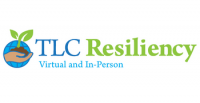The novel coronavirus brought the world to its knees in March and continues to wreak havoc on our lives and mental health. While all members of society have been negatively impacted in some way, health care workers are seeing the brunt of the negative impacts. With unknown cures for the virus, fear of infection, inadequate PPE, and growing number of patients, health care workers are experiencing the psychological impacts of the virus.
Healthcare workers are already prone to burnout (i.e., emotional exhaustion specifically relating to your job), especially when they have a high number of patients and are younger and/or newer to the healthcare field.1 Burnout becomes an issue for both the healthcare provider and the patients as it contributes to diminished quality of care, decreased patient safety, and poorer functioning of the healthcare worker. With the increase in the number of patients, along with the novelty of the virus and how to treat it, burnout is a real and serious threat to the well-being of healthcare workers in hospitals.
In addition to the increased risk for burnout, healthcare workers are facing other serious mental health challenges during the Covid-19 crisis. Research conducted in the Hubei Province, the original epicenter of the coronavirus, gives us a glimpse into what our healthcare system is currently facing during this pandemic. Out of over 1,200 healthcare workers in Wuhan, 50.4% reported symptoms of depression, 44.6% reported symptoms of anxiety, 34% reported insomnia, and 71.5% reported psychological distress.2 Sources of distress for healthcare workers are likely to include feelings of vulnerability or loss of control, concerns about the health of the self and family members, concerns about the spread of the virus, changes in work, and feelings of isolation.3 The fact that the virus is human-to-human transmissible and potentially fatal increases feelings of fear and the perception of danger. Additionally, shortages in supplies and a sudden influx of patients may contribute to pressures of workers on the frontlines. From the Hubei sample, nurses, women, individuals working in Wuhan, and frontline workers reported more severe symptoms of depression, anxiety, insomnia, and distress. Working on the front lines with direct engagement with Covid-19 patients was considered to be an independent risk factor for worse mental health outcomes, suggesting that nurses and doctors on the frontlines are at serious risk for developing mental health difficulties. Even though this data is from China, the U.S. is currently leading the world in the number of confirmed Covid-19 cases. With a soaring number of cases in the country, it is anticipated that many of our healthcare workers are struggling with their psychological well-being as well.
While we regard nurses, doctors, and other healthcare professionals as heroes, we must acknowledge that they too need our help during these unprecedented times. Tender Loving Care Virtual Resiliency (TLC-VR) arose from this recognition that healthcare workers need help coping with the pandemic.The world was not prepared for COVID-19, and many people suffer(ed) both physically and emotionally. TLC Virtual Resiliency (TLC-VR) started in response to a direct call for help from professionals struggling emotionally during the pandemic.
We answered this cry for help and created TLC-VR to offer assistance to frontline providers. Through psychoeducational group sessions, we teach healthcare workers about coping and resilience. With the right support systems in place, we hope that our healthcare heroes will emerge from this crisis stronger and more resilient to life stressors than they were before.
1- Bakhamis, L., Paul, D. P., 3rd, Smith, H., & Coustasse, A. (2019). Still an Epidemic: The Burnout Syndrome in Hospital Registered Nurses. The health care manager, 38(1), 3–10.
2- Lai, J., Ma, S., Wang, Y., Cai, Z., Hu, J., Wei, N., … & Tan, H. (2020). Factors associated with mental health outcomes among health care workers exposed to coronavirus disease 2019. JAMA network open, 3(3), e203976-e203976.
3- Wong TW, Yau JK, Chan CL, et al. The psychological impact of severe acute respiratory syndrome outbreak on healthcare workers in emergency departments and how they cope. Eur J Emerg Med. 2005;12(1):13-18.

